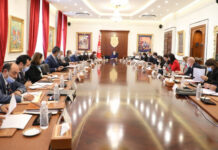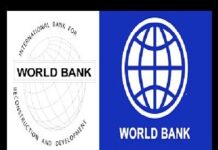“EU countries are called upon to play a greater role in supporting the economies of the North African countries, warning of the serious threat to the Tunisian state in these exceptional circumstances,” Italian Interior Minister Luciana Lamorguez said Sunday (September 5th, 2021) on the sidelines of her participation in the Ambrosetti Forum, which is held every September at the European House in Cernobio, Italy.
Tackling illegal immigration
“We must help North African countries address the phenomenon of illegal migration, after they were severely affected by the COV pandemic, where many jobs were lost and unemployment rose, which encouraged many groups to risk themselves and migrate their countries illegally,” Lamorguez said at the forum.
Algeria, particularly Tunisia, had been hit by a violent earthquake as a result of the health pandemic after maintaining stability shortly after the Arab Spring revolutions.
Italian Interior Minister Luchana Lamorgezi said in an interview with the Italian newspaper Lastamba that illegal immigration was a “complex problem”, and that there was no invasion, but that the numbers were increasing.
In the same interview, the Minister also considered that the countries from which migrants came were in crisis and that there was no government, parliament and the State on its knees.
The Italian Interior Minister visited Tunisia on May 20, 2021, along with members of the European Commissioner for Internal Affairs to discuss with the President the issue of illegal immigration, according to the presidential report.
Tunisia under pressure?
European countries like Italy are seeking to restore their regional strategies and focus their interests in North Africa, particularly with the spread of the Corona pandemic and its negative effects on its economy.
The Tunisian Forum for Economic and Social Rights said the visit was part of the Italian state’s policy of resisting illegal immigration and was under uninterrupted pressure from Italy and the European Union on Tunisia to impose more cooperation in security control of borders and coasts and cooperation in the forced deportation of migrants.
The Forum warned of the seriousness of what the European Union and Italy are planning in the context of the so-called resistance to irregular migration and holds responsibility for the presidency of the Republic and the authorities in the country, which it considered to be abandoning its role in dealing with the migration file.
On the other hand, the Tunisian state continues to adopt the same vague and traditional approach based on accepting aid from abroad and in dealing with these pressures amid the absence of a clear strategy and communication policy that explains the future of relations with European countries, especially in the current exceptional situation.
Rifi-JDD











